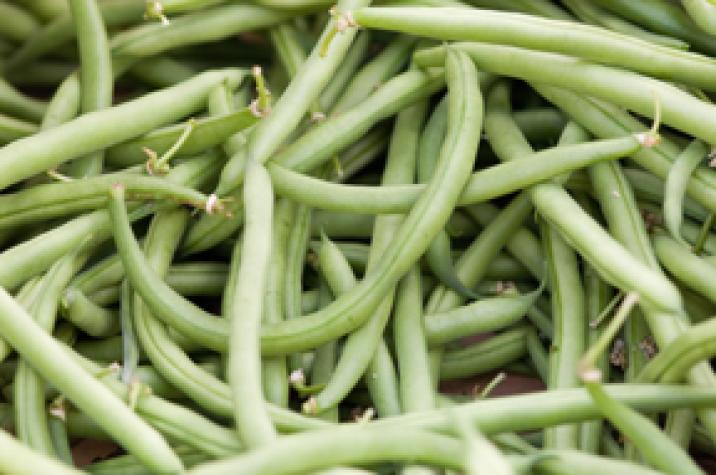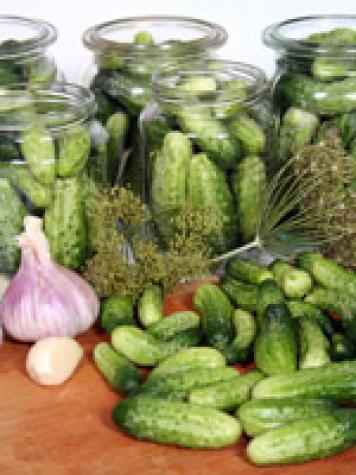
Summer can create challenges for food budget
It is important to provide balanced, nutritious meals for your children throughout the summer. Unfortunately, summertime can pose challenges to the family food budget because children are eating more meals at home.

Choose lean ground beef for better health
While shopping at the grocery store, it is easy to spend a long time at the meat counter trying to make a decision about which package of ground beef to buy. There are percentages written on the package and there is a big price difference. For health, it is best to purchase the leanest ground beef. If that is too hard on your wallet, there are ways you can decrease the fat in ground beef.

Beans are inexpensive, healthy and convenient
Beans are one of the best values around when it comes to the amount of nutrients for your dollar. One cup of cooked pinto beans provides 14 grams of fiber, 14 grams of protein, less than one gram of fat and around 230 calories.

Organic produce – Is it the best choice?
Most of us would like to feed ourselves and our families the most nutritious foods we can. Sometimes, however, it is not clear what choice to make. Marketers would have us think organic is best, but a report in a Tufts Health and Nutrition Letter describes an analysis of current research that indicates that organic may not be as great as once thought in terms of nutrition.

Free Seasonal and Simple app
The Seasonal and Simple smart phone application is available for both iOS and Android devices. The application is free to download.

Pick a peck of peppers this summer
Peppers come in a variety of colors, shapes, sizes and flavors ranging from sweet to spicy hot. They are a colorful addition to any meal, or they can be enjoyed as a snack on their own.

Brussels sprouts can be a nutritious treat
Brussels sprouts, the green cruciferous vegetables sometimes referred to by children as “cannon balls,” are not typically a favorite from the vegetable group. But when they are selected well, eaten soon after they are picked and cooked properly, they can be a nutritious treat.

Make a mystery meal into a culinary delight
It’s time to eat. You open the fridge and find some brown rice, a small piece of meat and some leftover vegetables. How can this possibly become a meal? Here are some tips on converting a mystery meal of leftovers into a culinary delight.

Helping children develop good health habits
Parents play an important role in helping their children develop good health habits. Healthy children eat well, live a physically active life and feel good about themselves and others.

Back-to-school nutrition
With the new school year upon us, parents should be reminded of the important role nutrition plays in assuring kids a successful school year. Nutrition and learning go hand in hand.

Healthy habits for your preschool-aged child
Preschool is a good time to help your child develop good eating habits. Because your child is with you most of the time, it is easier to influence their food choices. Keep in mind that the eating habits learned during this time can be carried into the future.

Good nutrition can be a tough sell to finicky eaters
The picky food preferences of children can make even the best of parents struggle to ensure their child eats right and to keep mealtimes from being a battle.

Feed your young athlete for maximum performance
Discover nutrition tips to fuel young athletes for energy, focus, and peak performance on and off the field.

Choose a pressure canner to safely preserve foods
With each year’s growing season, there seems to be another round of “new and improved” kitchen gadgets to make preserving the harvest easier and better. Some can be a great help; others, like the electric multi-cooker appliances, may not result in the safe canned product one might be expecting.

Blanch vegetables before freezing
Every fresh sweet corn season I hear people telling others to preserve their corn by just putting it in the freezer. Unless you are freezing onions or green peppers, blanching is a must before freezing vegetables.

Issues with canning on ceramic or glass stovetops
A common question about canning foods is, “Is it OK to can on my ceramic or glass stovetop?”First, check the recommendations of the particular stove’s manufacturer. Some say absolutely not, while others say it is OK, but with certain stipulations.

Get ready for home canning season
When you plant your garden, it’s so easy to imagine all of the great tasting, healthy food that will come from those tiny seeds and plants. Many people grow not only enough to eat during the summer but enough so they can preserve those garden delights for cold winter nights. Spring is a great time to make sure your canning gear is ready for production when your garden starts producing more than you can eat.

Packing perfect pickles
It can be very rewarding to serve your family and guests your very own homemade pickles. Whether you are a novice or experienced pickle maker there are things to keep in mind when making your pickled products. Below are several questions that we have received at the Extension office with the correct answers:

Prevent botulism from home-canned foods
Microorganisms all around us can cause food spoilage — they are in the air and soil, and on people and animals. Many microorganisms are difficult to get rid of, including Clostridium botulinum — the bacteria that causes botulism. Botulism is rare but can be fatal. Home-processed foods are often the culprit of foodborne botulism.

Preserving fruit salsas
Tomato-based salsas have been popular for years for food preservers, but there is a new twist on this favorite — fruit salsas. “Most fruit salsas are preserved to be used with meats, poultry and fish,” said Susan Mills-Gray, nutrition/health specialist with MU Extension. “The fruit, herbs and heat of onion or pepper, as well as the vibrant colors adds zest to meals.”

Many ways to preserve garden green beans
Explore safe methods to preserve green beans through canning, freezing, drying, or pickling, ensuring year-round enjoyment.

Making fruit leather
A great way to preserve extra fruit or fruit with bumps, bruises or knots is to make fruit leather. The National Center for Home Food Preservation at University of Georgia Cooperative Extension has helpful directions for making fruit leather:

Get the best results when freezing your produce
Many people enjoy planting gardens and eating fresh, homegrown produce in the summer. For people who want to preserve their garden vegetables and eat them another time, freezing is a viable option. The color, flavor and texture of the produce is often maintained when it is frozen, and the freezing process is easy and less time consuming than canning.

Pack a perfect pickle
Pickling is a different way to enjoy cucumbers and is often an easy process, but there are some important things to know to assure pickles are safe to eat. The main ingredients used for pickling are acid, salt, sugar and spices. Lime and alum are also sometimes used to make crisper pickles.